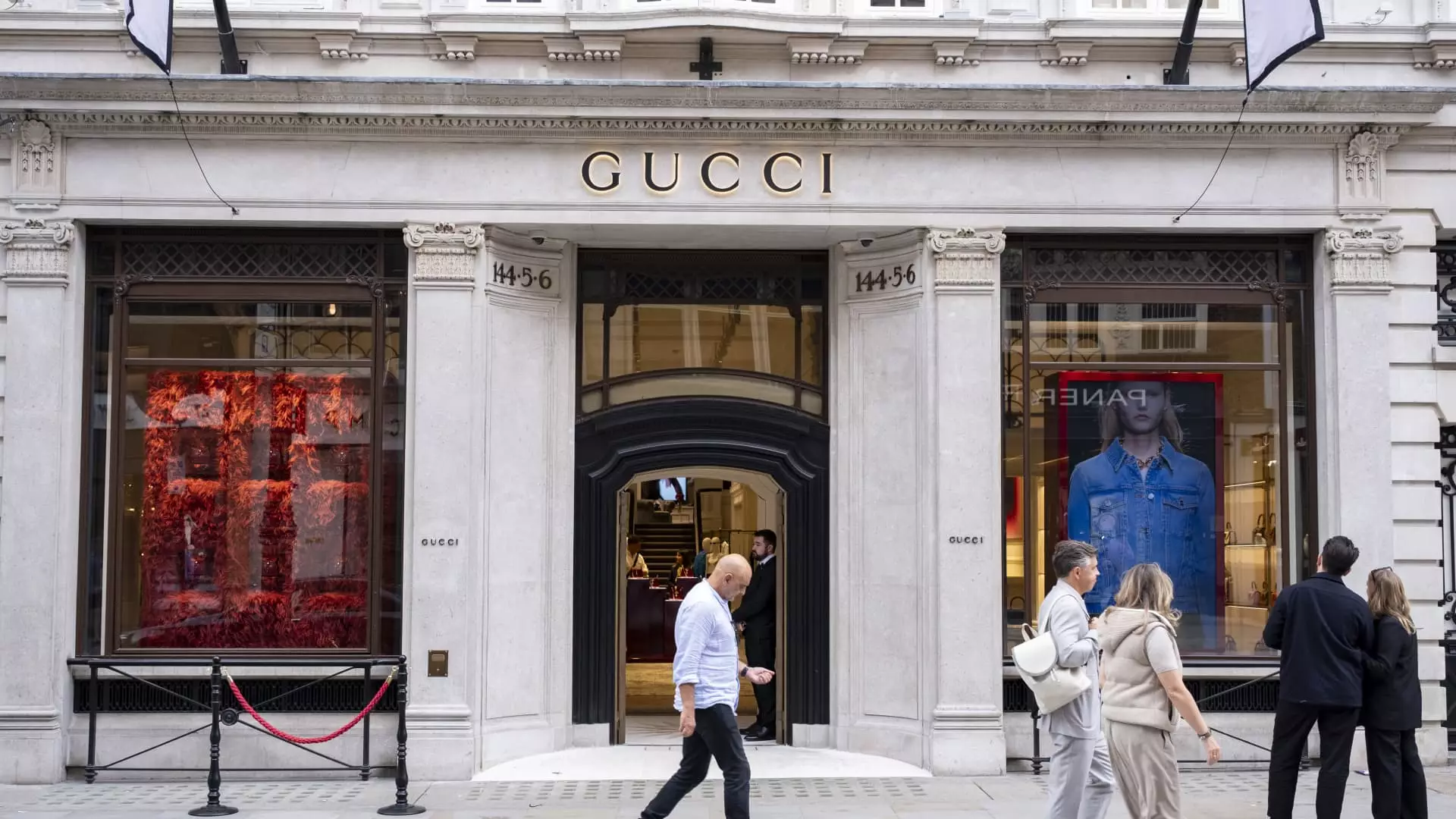Kering, the French luxury group, experienced a significant drop in its shares by over 9% on Wednesday. This decline came after the company issued a warning regarding its first-half profits, citing a substantial decrease in demand for its flagship brand, Gucci. The group expects a sharp decline of 40% to 45% in first-half operating income compared to the previous year, as it grapples with retaining market share in the highly competitive luxury market.
Kering’s chairman and CEO, François-Henri Pinault, highlighted the company’s poor performance in the first quarter, which led to the bleak profit forecast. Market conditions, particularly in China, along with the strategic repositioning of certain brands within the group, notably Gucci, contributed to the downward pressure on revenue. This decline in sales prompted Kering to project significantly lower operating profits for the first half of the year.
Unlike its competitors such as LVMH and Hermes, Kering faced a challenging first quarter with a 10% decline in group sales, primarily driven by diminishing Gucci sales. While Gucci was previously a top performer within the group, delivering robust results in 2021, the brand has struggled to maintain its market share amidst changing consumer preferences and economic conditions.
In contrast to Kering’s performance, other luxury brands like LVMH and Hermes have demonstrated resilience in the face of economic headwinds. Gucci’s decline in sales contrasts with the success of these competitors, showcasing the shifting landscape of the luxury market and the challenges that Kering is currently facing.
The impact of declining sales was evident in Kering’s overall financial results, with a 6% drop in fourth-quarter 2023 revenues. Sales across all major brands within the group, including Yves Saint Laurent, also experienced a decrease. Gucci, in particular, saw a 4% decline in sales on a comparable basis, reflecting the broader challenges faced by Kering in maintaining its market position.
Kering’s recent struggles in the luxury market highlight the ever-changing nature of consumer preferences and the competitive landscape within the industry. The company’s focus on strategic repositioning and long-term investments in its brands will be crucial in overcoming the current challenges and regaining its foothold in the luxury market.

Leave a Reply